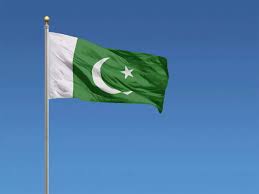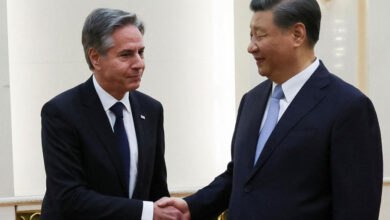Cash-Strapped Pakistan requests the swift refinancing of USD 1.3 billion in Chinese loans
Cash-strapped According to a media source on Tuesday, Pakistan has asked its dependable friend China to expedite the refinancing of maturing commercial loans totaling USD 1.3 billion and has informed it of the dimming chances of the IMF loan program being revived.
According to The Express Tribune newspaper, the request was made on Monday by Finance Minister Ishaq Dar in a meeting with China’s Charge d’Affaires Pang Chunxue.
According to officials, the finance minister brought up the need to refinance two commercial loans from China totaling USD 1.3 billion that are due in the next two to three weeks.
The newspaper cited sources as stating that although Chinese officials have previously promised to repay both loans to Pakistan, Islamabad wants the money to be re-loaned as soon as it is repaid.
Dar requested the Chinese charge d’affaires to promptly refinance the loans so that Pakistan’s foreign currency reserves would be supported.
In less than two weeks, Pakistan is expected to repay the Bank of China $300 million in debt. Additionally, the cash-strapped nation is required to pay China Development Bank another USD 1 billion within three weeks.
The official foreign currency reserves of the nation are now at USD 3.9 billion, and any delay in refinancing the loans may significantly reduce those reserves to USD 3 billion.
According to a statement from the Ministry of Finance, “the finance minister further updated the charge d’affaires about progress on talks with the IMF on completion of the ninth review.”
In order to save the government from going bankrupt, Pakistan and the International Monetary Fund (IMF) were unable to get to a staff-level agreement on the crucial USD 1.1 billion rescue package.
According to experts, the funds are a crucial component of a USD 6.5 billion rescue package that the IMF authorized in 2019 if Pakistan is to avoid defaulting on its responsibilities under foreign debt.
Dar said that despite a significant decrease in the current account deficit, the IMF was refusing Pakistan’s request to lessen the necessity of arranging USD 6 billion in fresh loans.
Although Pakistan had secured USD 4 billion, the international lender insisted on USD 6 billion in new loans, he said.
The minister said there was optimism the IMF would sign the staff-level agreement after securing USD 3 billion, but that did not occur.
There is optimism that the World Bank would sanction USD 450 million and the Asian Infrastructure Investment Bank will contribute USD 250 million after the agreement. Budget records, however, revealed that the government did not anticipate the USD 3 billion to arrive before June 30 and had anticipated the inflows in its projections for the next fiscal year.
According to officials, the Chinese envoy was notified in Islamabad that the IMF program will cease on June 30 despite the government’s best efforts.
Dar said unequivocally on Saturday that there was no likelihood the tenth programme review would be completed, notwithstanding the IMF’s insistence on combining the ninth and tenth programme reviews.
He said last week that Pakistan was thinking about threatening default and asking the bilateral creditors for a debt restructure. In a background briefing, Jameel Ahmad, governor of the State Bank, denied the intentions, stating that “as of now, there is no plan to enter into any debt restructuring.”
According to the article, Dar remarked at a seminar on Monday that “we should give hope to the people that Pakistan will come out of this crisis, and there is no need to panic about the possibility of default.”
The Pakistani government announced its 2023–2024 budget on Friday in an effort to stave off a potential default caused by declining foreign assets.
Pakistan’s attempts to get access to the USD 6.5 billion loan package it has already agreed to with the IMF are bogged down since the budget must please the international lender in order to guarantee the release of more bailout funds for the cash-strapped nation.
Since many years ago, Pakistan’s economy has been in a fast slide, putting enormous pressure on the underprivileged masses via unbridled inflation and making it almost difficult for a large number of people to make ends meet.







